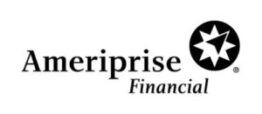
Bhenoy Dembla (also known as Ben Dembla) of Chicago Illinois a stockbroker formerly employed by Merrill Lynch Pierce Fenner Smith Incorporated has been barred from associating with any Financial Industry Regulatory Authority (FINRA) member in any capacity based upon consenting to findings that Dembla violated the firm’s mutual fund policies by entering and cancelling fake mutual fund sell orders to allocate excess Class B mutual fund shares to a customer’s account. Letter of Acceptance Waiver and Consent No. 2016051014801 (Feb. 5, 2019).
According to the AWC, while associated with Merrill Lynch, the firm’s policies proscribed Class B mutual fund share purchases in situations where the customer’s accumulated household Class B holdings surpassed $100,000.00. Apparently, similar restrictions were referenced in the prospectuses of mutual funds sold by Dembla in customer’s accounts. Evidently, the restrictions were implemented by Merrill Lynch as a safeguard for investors; the firm aimed to limit total purchases considering the higher contingent deferred sales charges and distribution fees of Class B shares as compared with other mutual fund charge classes.
The AWC stated that in order to circumvent the firm’s restrictions, Dembla entered fictitious sell orders in customers’ accounts immediately prior to purchasing the Class B shares. Apparently, the purchases were accepted by the firm as a result. Thereafter, Dembla cancelled the fake sell orders. Consequently, customers’ accounts exceeded the allowable Class B shares.
The AWC revealed that between December of 2015 and April of 2016, a total of forty-one sell orders had been placed by Dembla so that he could effect twenty-nine Class B mutual fund share purchases in eighteen customers’ accounts. Consequently, the customers collectively maintained Class B shares that exceeded the accumulation limit by $863,000.00. With respect to each order, Dembla reportedly falsified entries in the firm’s databases regarding the rationale of customers’ sell orders. FINRA found that Dembla’s conduct was violative of FINRA Rule 2010.
FINRA Public Disclosure confirms that Dembla has been identified in four customer initiated investment related disputes pertaining to accusations of Dembla’s violative conduct while employed with Merrill Lynch. Particularly, on July 13, 2016, a customer initiated investment related complaint concerning Dembla’s activities was settled for $200,000.00 in damages based upon allegations that inappropriate investment recommendations had been made to the customer concerning closed-end funds and unit investment trust products.
On March 15, 2017, another customer initiated investment related complaint regarding Dembla’s conduct was resolved for $167,000.00 in damages founded on accusations of unsuitable investment recommendations having been made to the customer between May of 2012 and September of 2016 pertaining to closed end funds and unit investment trust products.
Thereafter, on April 25, 2017, a customer initiated investment related complaint involving Dembla’s activities was settled for $110,000.00 in damages supported by allegations that the customer was poorly advised through April of 2016 in regard to the unit investment trust and mutual fund investment transactions placed in the customer’s account. Then, on May 4, 2018, a customer initiated investment related complaint concerning Dembla’s conduct was resolved for $95,000.00 in damages based upon accusations that municipal, government, and corporate unit investment trust transactions were placed in the customer’s account that were not suitable for the customer; and UIT trades were placed in the customer’s account on an excessive basis.
Dembla was discharged by Merrill Lynch on August 24, 2016 founded on allegations that he failed to abide by the firm’s policies concerning the amount of Class B mutual fund shares held in customers’ investment accounts.








